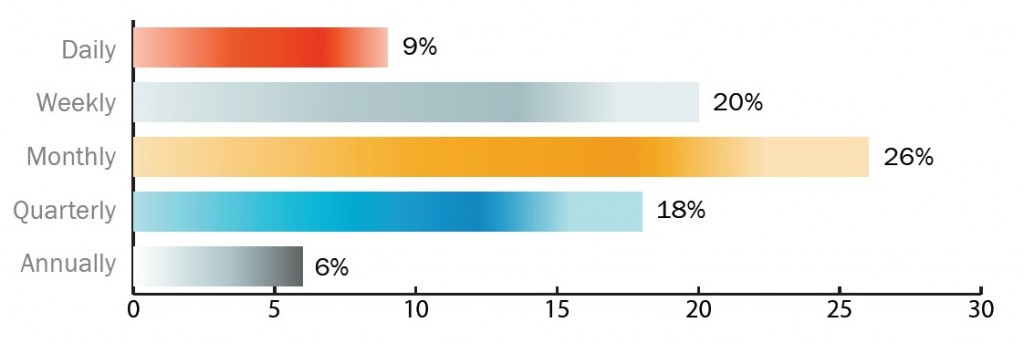How marketers profit from technology in a multi-channel world
TDC) has released the results of its pan-European marketing study, “The Data Driven Marketing Survey 2013, Europe”. The study reveals that a shift to digital channels and the increasing importance of data have led to a “class structure” in marketing technology investments among companies using these solutions. Telco and IT companies invest almost 20% of their marketing budget on improving their marketing infrastructure, whilst retail (17%) and finance (13%) are close followers. Overall, however, 50% of marketing departments across all industries surveyed spend less than 5% to improve their marketing with technology investments.
In creating the report, Teradata eCircle surveyed more than 1,100 marketing professionals ranging from CMOs and key decision makers to marketing managers and technology users, from 19 European countries and across nine major industries, to uncover the challenges and trends in data-driven marketing adoption by European businesses and how marketers use technology to master them.
The study shows that despite the current, uncertain economic climate, the shift to digital is significant. Marketers still plan to increase their spending in digital channels, especially in social media (79%), mobile marketing (79%) and online display advertising (70%) within the next 12 months. What’s more, the first seven channels marketers plan to invest in are digital, with call centers being the first non-digital investment priority in 8th place.
The research also highlighted marketers’ desire to embrace data, citing it as a key driver of marketing success, with data-driven marketers more than twice as satisfied with their marketing programs than their counterparts who are not basing their decisions on data.
With two-thirds of marketers claiming a lack of simple metrics and the short-term view of their marketing departments as their biggest obstacles to success, the findings provide an eye-opening insight into the struggles facing the modern multi-channel marketer. In fact, the single biggest challenge facing marketers in 2013 was revealed to be the pressure to increase revenue.
Out of the more than 50% of marketers utilizing seven or more channels, the research also found that only 33% currently have Campaign Management technology to monitor their activity, whilst a mere 17% use a Marketing Resource Management solution. Notably only 10% use both.





 For as long as I can remember marketing surveys have regularly arrived in my inbox asking for answers to questions designed to capture trends in marketing activities and spend. The format is pretty consistent; ‘over the coming year are you planning to spend more / same / less on the following.’ And the following might include a range of media – TV, Radio, Press – and of course over the years this has expanded to include categories such as direct marketing, promotions, PR, digital, website, social and so on.
For as long as I can remember marketing surveys have regularly arrived in my inbox asking for answers to questions designed to capture trends in marketing activities and spend. The format is pretty consistent; ‘over the coming year are you planning to spend more / same / less on the following.’ And the following might include a range of media – TV, Radio, Press – and of course over the years this has expanded to include categories such as direct marketing, promotions, PR, digital, website, social and so on.